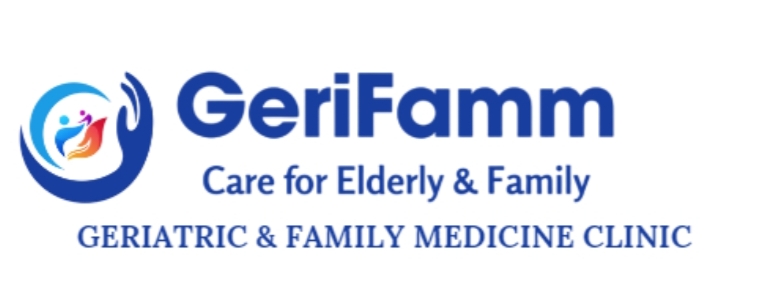Introduction
Gestational Diabetes Mellitus (GDM) is a condition that affects pregnant women during the second or third trimester of pregnancy. It occurs when the body cannot produce enough insulin to meet the increased demands of pregnancy, leading to elevated blood sugar levels. GDM affects approximately 2-10% of pregnancies and poses risks to both the mother and the baby, making proper management critical to ensure a healthy pregnancy and delivery.
In this blog, we will explore the causes of GDM, the importance of diet in managing the condition, and the supportive treatments available for pregnant women with GDM.
What is Gestational Diabetes Mellitus (GDM)?
Gestational diabetes occurs when the pancreas fails to produce enough insulin, resulting in elevated blood sugar levels. Insulin is a hormone that helps regulate blood glucose levels, and during pregnancy, the body undergoes hormonal changes that can make it less sensitive to insulin. This insulin resistance increases the risk of elevated blood sugar (hyperglycemia).
While GDM usually develops later in pregnancy and typically resolves after childbirth, it can still lead to complications for both the mother and the baby if not properly managed.
Causes and Risk Factors for GDM
The exact cause of GDM is not fully understood, but several factors are known to increase the risk of developing the condition:
- Obesity:
Overweight women are at a higher risk of developing GDM. Excess body fat can lead to insulin resistance, making it more difficult for the body to regulate blood sugar levels during pregnancy. - Family History:
If a woman has a family history of diabetes, particularly type 2 diabetes, she is more likely to develop GDM. - Age:
Women over the age of 25 are at an increased risk of developing GDM, with the risk increasing as age rises. - Previous Gestational Diabetes:
Women who had GDM during a previous pregnancy are more likely to develop it again. - Ethnicity:
African American, Hispanic, Native American, and Asian American women are at a higher risk for GDM.
Symptoms of Gestational Diabetes Mellitus
GDM often does not present with noticeable symptoms, which is why screening is essential during pregnancy. However, some women may experience:
- Increased thirst
- Frequent urination
- Fatigue
- Blurred vision
- Frequent infections
Importance of Diet in Managing GDM
Diet plays a pivotal role in managing gestational diabetes. Proper nutrition helps control blood sugar levels and ensures both the mother and baby receive the nutrients they need for healthy growth and development.
- Carbohydrate Control:
Carbohydrates directly impact blood sugar levels. Women with GDM should focus on consuming complex carbohydrates, such as whole grains, vegetables, and legumes, while limiting refined sugars and simple carbs like white bread and sugary snacks. - Balanced Meals:
It’s important to eat balanced meals that combine carbohydrates with lean proteins, healthy fats, and fiber. This helps slow down the absorption of glucose and maintain stable blood sugar levels. - Frequent, Small Meals:
Eating smaller, more frequent meals throughout the day can help regulate blood sugar levels. Instead of three large meals, aim for five to six smaller meals that are balanced in nutrients. - Avoiding Sugary Beverages:
Sugary drinks, such as sodas and fruit juices, can cause a rapid spike in blood sugar. Opt for water, herbal teas, or sugar-free beverages instead. - Monitoring Blood Sugar:
Regular monitoring of blood glucose levels is essential for women with GDM. This helps ensure that blood sugar levels remain within the target range and allows for adjustments to the diet and lifestyle as needed.
Supportive Treatment for Gestational Diabetes
In addition to dietary modifications, there are other treatment strategies that can help manage GDM:
- Exercise:
Regular physical activity can help improve insulin sensitivity and regulate blood sugar levels. Moderate-intensity exercise, such as walking, swimming, or prenatal yoga, is typically recommended for women with GDM. - Insulin Therapy:
In some cases, dietary changes and exercise alone may not be sufficient to control blood sugar levels. If blood sugar remains elevated, insulin therapy may be prescribed to help lower blood glucose levels. - Oral Medications:
Although insulin is the most common treatment for GDM, some women may be prescribed oral medications, such as metformin, to help control blood sugar levels. - Monitoring Fetal Growth:
Regular prenatal visits and ultrasound scans are important for monitoring fetal growth and development. Uncontrolled blood sugar can lead to excessive fetal growth (macrosomia), which may increase the risk of complications during delivery.
Conclusion
Gestational Diabetes Mellitus is a common but manageable condition that requires careful monitoring and treatment. A balanced diet, regular physical activity, and, if necessary, medication can help ensure that blood sugar levels are well-regulated during pregnancy. If you’ve been diagnosed with GDM, it’s important to work closely with your healthcare provider to create a personalized treatment plan that meets your needs and supports a healthy pregnancy.
blood sugar levels. If blood sugar remains elevated, insulin therapy may be
prescribed to help lower blood glucose levels.
3. Oral Medications:
Although insulin is the most common treatment for GDM, some women may be
prescribed oral medications, such as metformin, to help control blood sugar levels.
4. Monitoring Fetal Growth:
Regular prenatal visits and ultrasound scans are important for monitoring fetal
growth and development. Uncontrolled blood sugar can lead to excessive fetal
growth (macrosomia), which may increase the risk of complications during delivery.
Conclusion
Gestational Diabetes Mellitus is a common but manageable condition that requires careful
monitoring and treatment. A balanced diet, regular physical activity, and, if necessary,
medication can help ensure that blood sugar levels are well-regulated during pregnancy. If
you’ve been diagnosed with GDM, it’s important to work closely with your healthcare
provider to create a personalized treatment plan that meets your needs and supports a
healthy pregnancy.

